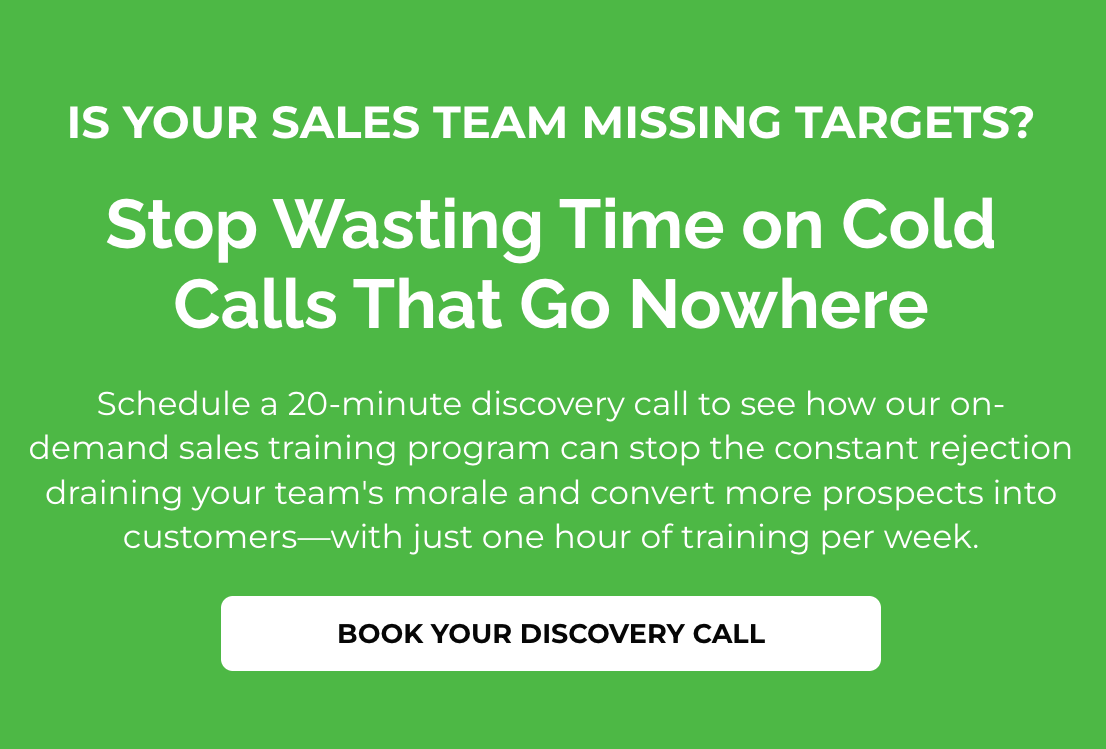Your Price Is Too High Sales Objection

Your Price Is Too High Sales Objection
“My sales calls consist of me following up on warm leads that our website generates. Our target audience is college students who want to make extra income working part-time at night. (We’re a bartending school) I’m frequently asked; “How much is it?” right up front when I connect with them. I AM the MOST expensive option in my area and there are other bartending schools close by. I know it’s too early to discuss price but when I try and push it off or delay the answer, they get irritated and I lose the sale. What should I do?”
Recommended Sales Strategy:
Sometimes the best sales strategy to win a fight is to avoid one – So give them what they want but with a plan.
You are correct in thinking that discussing the price before confirming a problem and identifying a pain caused by that problem is too soon however there are always exceptions to the rule, and your sales scenario is one of them.
Prospect: Yes, thanks for getting back in touch with me… How much is your program?
Salesperson: $1,599
Prospect: Wow, yea, your price is too high.
So here’s what you want to do:
Use a sales strategy that will identify exactly what they mean by “Your Price Is Too High”
There are two options/meanings when a prospect says “Your Price Is Too High” and you need to uncover which one your prospect is referring to:
1. Can’t afford it even if my life depended on it (not even with payment plans/financing etc)
2. I could afford to pay that, but other factors are leading me to believe I can get what I want elsewhere for less
It’s important to identify which perspective your prospect is coming from. If they couldn’t afford it no matter what, even with financing or payment schedule options, then you have nothing left to talk about. You as the salesperson did your job! You’ve uncovered the fact that this prospect doesn’t meet the financial qualifications needed to be a valid opportunity. Politely end the call and go on to the next lead/prospect.
If however it’s the latter (number 2) and they could afford it but they don’t see the value, you are still in business (providing you know what to say/do next)
So How Do I Identify Which Meaning My Prospect is Referring To?
Easy. Just ask:
“Mr. Prospect, when you say “our price is too high” do you mean that you couldn’t afford it even if you’re life depended on it, or do you mean you could afford it if you wanted to, but believe you might be able to get something similar or maybe even better elsewhere for less?”
It’s going to be one or the other. Either way, you will come out on top. If the prospect isn’t qualified on funds, it doesn’t matter if they have a need and they are the decision maker. You only have two out of three pieces and when it comes to having a potential opportunity, you need all three of the qualifying pieces. No sense trying to put a square peg into a round hole. Move on (now, we are making the assumption that this is the decision maker whose pay grade covers these types of decisions, etc)
And if you uncover that they could afford it if they wanted to, but don’t see that value yet, you’re still in business (again, providing you know what to do next)
One option to use if the prospect could afford it if they saw the value would be to say something along the lines of:
Salesperson: Well then why don’t we take a minute to see if what we have to offer is even close to what you’re looking for and if it is, I’ll do everything in my power to make it as easy as possible to move forward with us if you decide that’s what you want to do, far enough?
Prospect: OK
And now you’re in a position to do what you were hired to do… Sell!
– Michael Pedone
Michael Pedone teaches inside sales teams how to pick up the phone and close business. He is the CEO/FOUNDER of SalesBuzz.com – An online sales training company.

